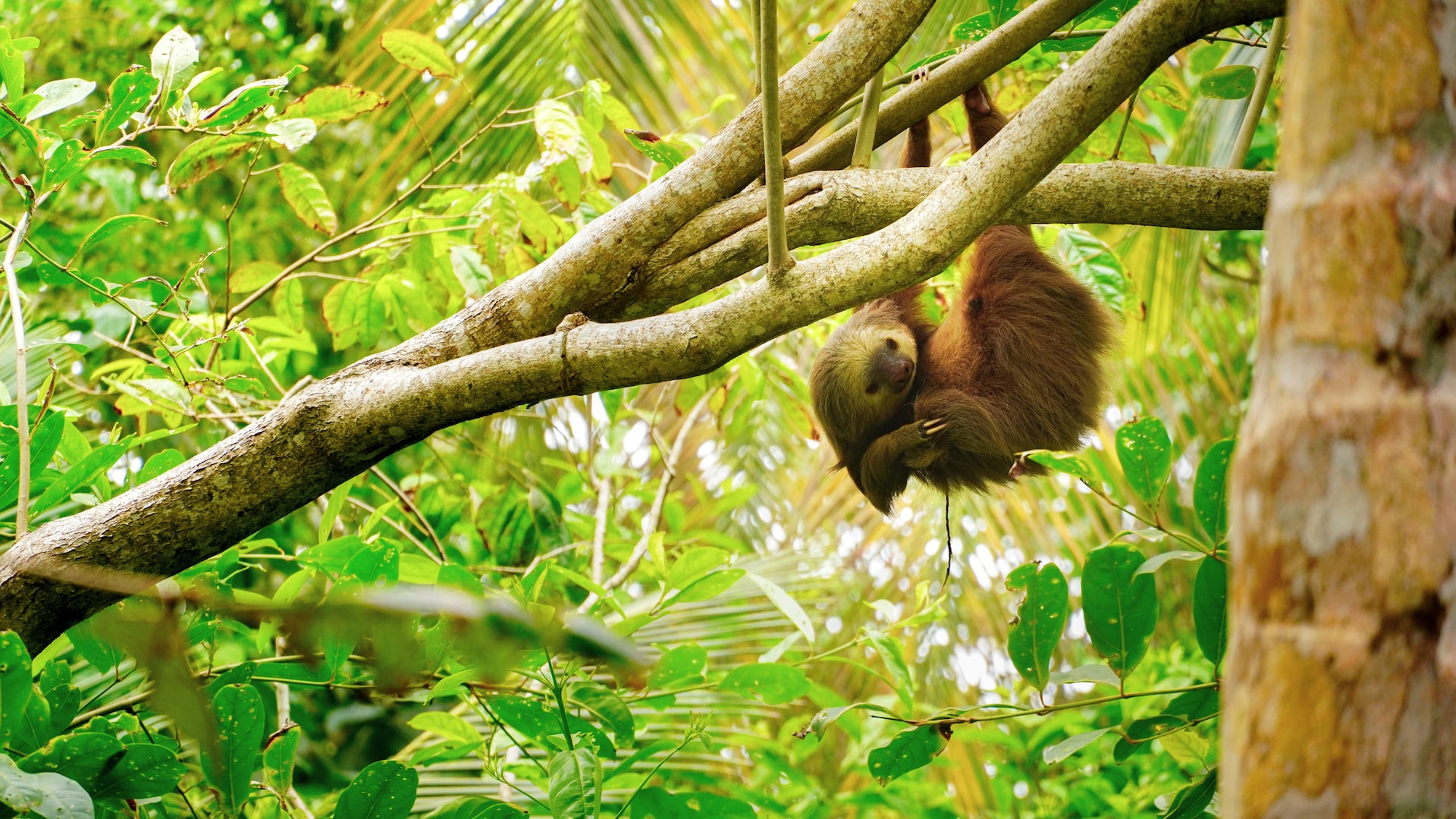
Thirteen countries from across the Latin American and Caribbean region came together in Costa Rica earlier this month to focus on how they can further boost excellent progress in unlocking biodiversity finance solutions across the region.
The 3-day event opened with Mr Rafael Gutierrez Rojas, Vice Minister of Environment, Ministry of Environment and Energy of Costa Rica, praising the partnership with BIOFIN and laying out a vision for the future.
“Without a doubt, the work we have done with BIOFIN has brought many benefits to our country,” said Mr Gutierrez. “Our work with BIOFIN opens many spaces for initiatives and building knowledge. Right now, we’re taking the very first steps and seeing the huge potential of this project. For protected areas in Costa Rica, BIOFIN will help implement mechanisms to increase finance flows to improve tourist infrastructure and preserve nature.”
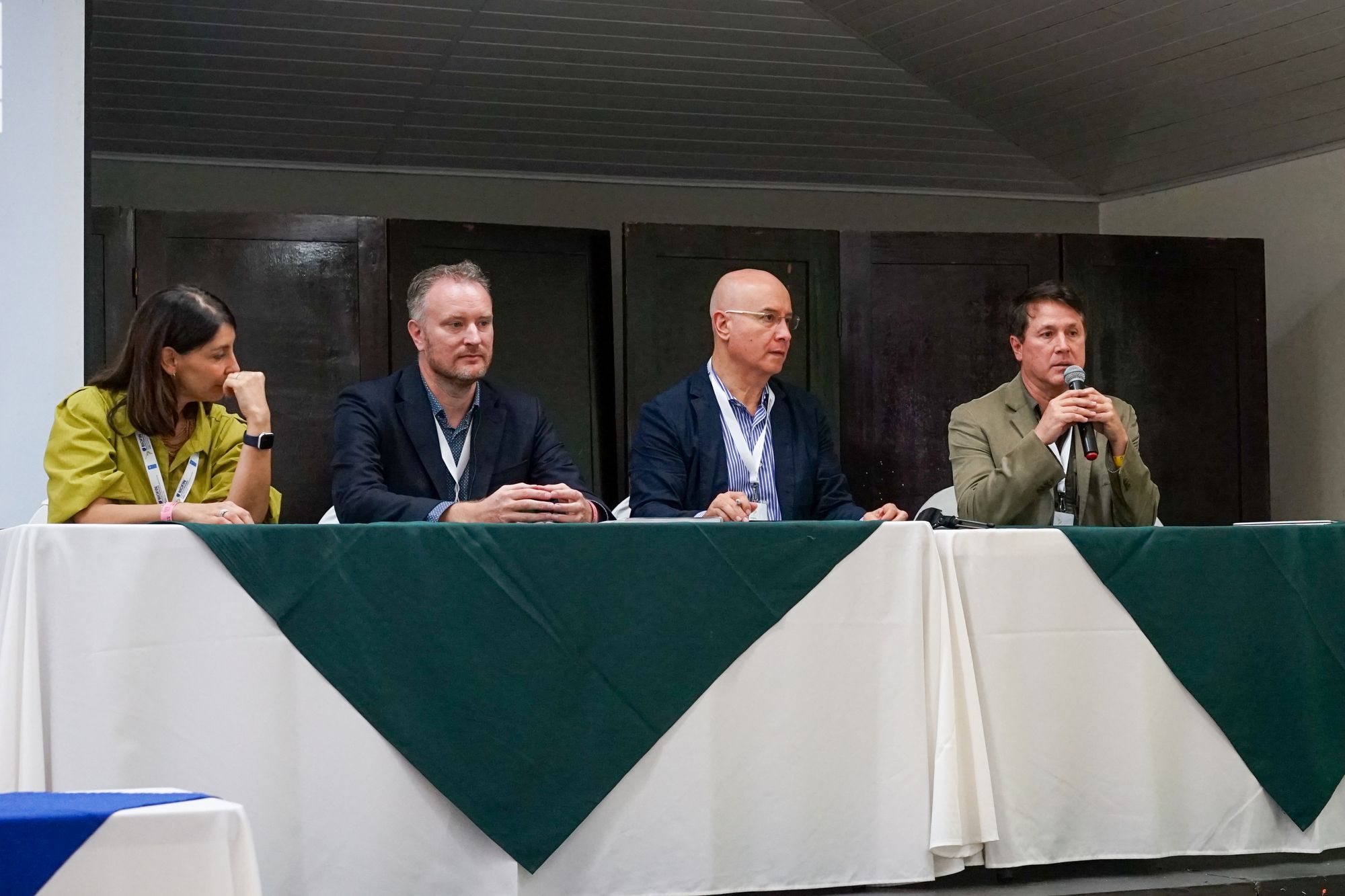
Mr Rafael Gutierrez Rojas, Vice Minister of Environment, Ministry of Environment and Energy of Costa Rica, far right, speaking at the opening alongside Mr Jose Vicente Troya, Resident Representative of UNDP Costa Rica.
Mr Jose Vicente Troya, Resident Representative of UNDP Costa Rica, highlighted how BIOFIN’s work touches many policy areas. “BIOFIN is a fundamental tool in our work, not just in nature and energy but also in governability and gender. BIOFIN is creating vanguard financial solutions that are trying to establish the balance between nature and the economy whilst also challenging current situations which aren’t fair. It presents pioneer solutions: Innovate, innovate, innovate at the highest level. This is what characterizes BIOFIN.”
Budgeting for biodiversity results
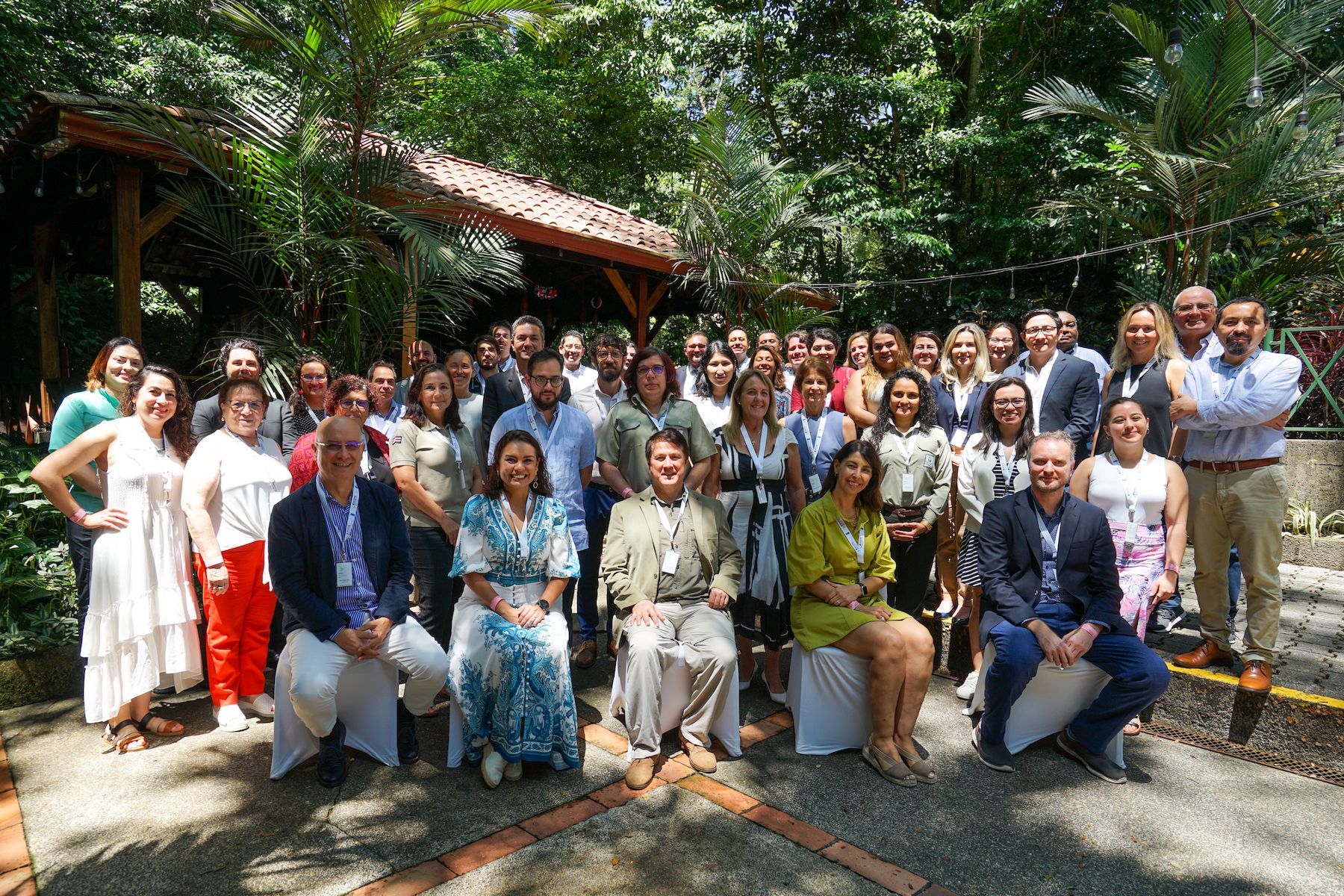
Over the last decade, there has been a shift to a results-based approach in public budgeting in areas such as health and education, areas which can more easily draw a more precise correlation between inputs and outputs (such as investment in vaccines leading to fewer illnesses). However, as we have seen in recent years around budgeting for climate change, it is possible to plan budgets with environmental considerations. It is indeed a critically important area to catalyse results for nature.
Results-based budgeting is one of BIOFIN’s signature solutions. The release of the Little Book on Investing in Nature revealed how 80% of the biodiversity financing comes from public budgets. Therefore it’s essential to explore how we can do more with what countries already have, knowing we can do more and better with a results framework.
Through BIOFIN’s work, which includes specific support from the European Union, we continue to work with partners to see how budgets can support biodiversity goals. One fundamental shift needed is to improve work at the local level, where planning is generally yet to integrate biodiversity targets.
BIOFIN is currently working with countries to create global guidelines to help develop this area further, using a host of best-in-class examples from the region and elsewhere. In Guatemala, for instance, BIOFIN is working with ten municipalities and has already raised around US$ 800,000 by applying results-based budgeting and local level.
From bees to banks
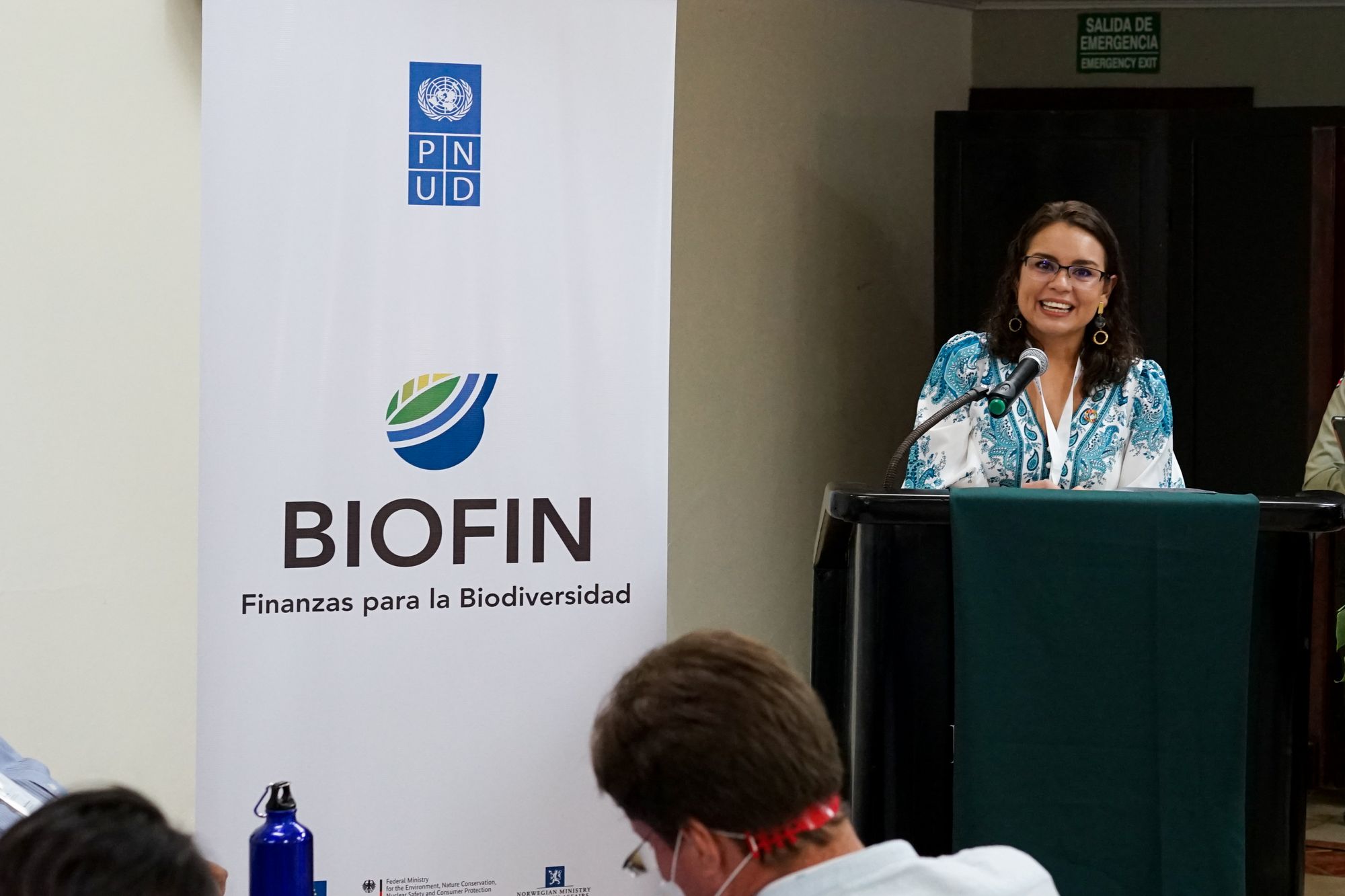
Another key area of focus was how the finance sector can help move countries towards nature-positive economies.
A landscape of the existing initiatives related to the finance sector was presented, showing a large array of opportunities being developed. Initiatives such as the TNFD, the NGFS or the GFRI were highlighted, demonstrating the strong momentum created at the global level to engage the finance sector on nature financial disclosures and natural positive investments. Representatives from IADB, the Central Bank of Cuba, the FEPCMAC in Peru, and EcoToken in Argentina, demonstrated innovative solutions being delivered in their countries.
The banks from Peru highlighted the latest results in their green credit programmes developed in collaboration with BIOFIN in particular the first microcredit programme financing only biodiversity positive investments called Biocredito. The local banks are also developing a green bond designed to finance the green economy transition including nature infrastructures. At the same time, Ecotoken demonstrated how blockchain and digital token could be used to finance nature in Argentina.
Biodiversity finance through the gender lens
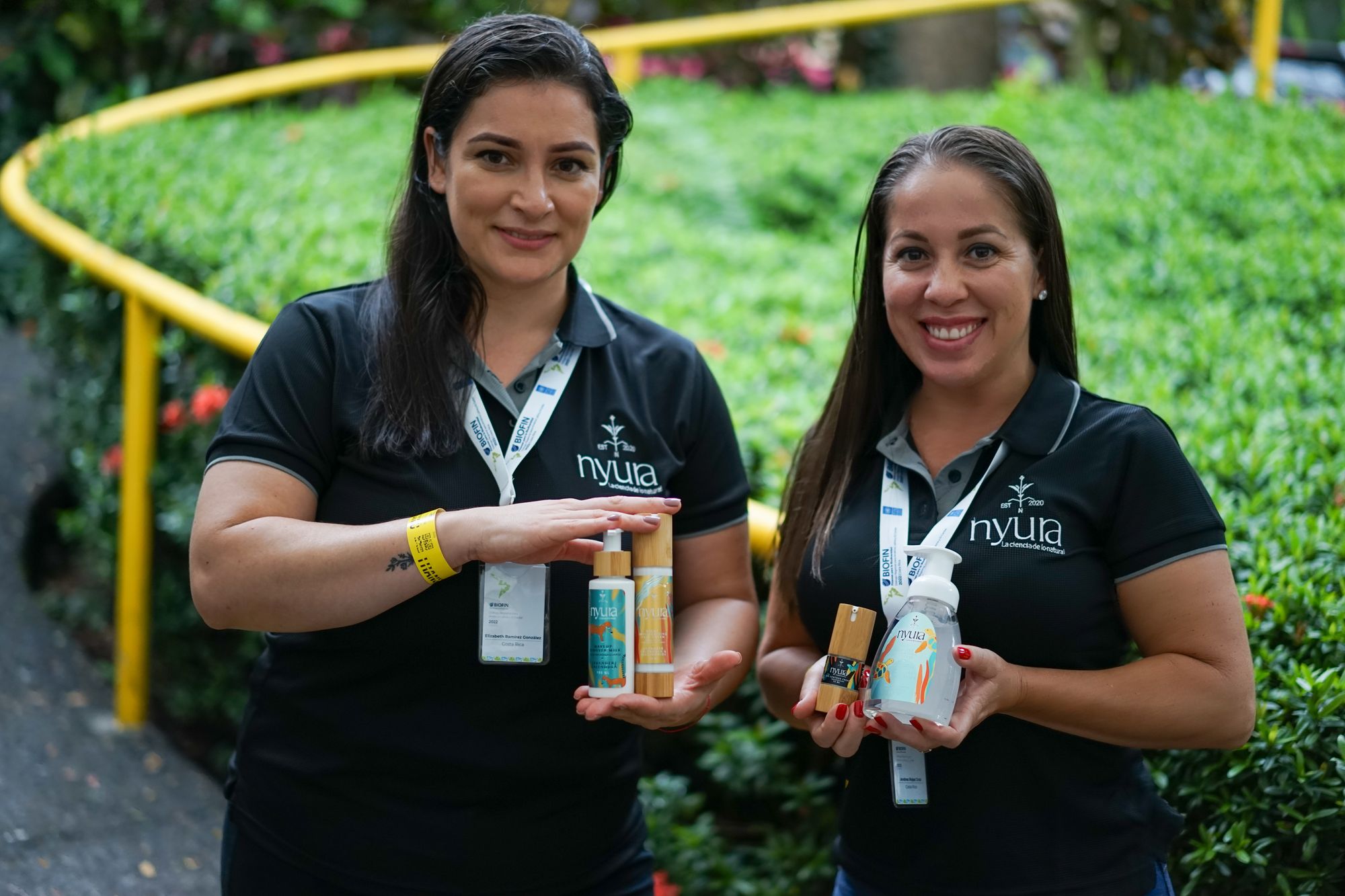
Despite the awareness of their role as agents of change, women’s representation in governance and decision-making is still low. As such, a session was dedicated to exploring how women’s rights can be promoted by designing and implementing financial solutions that reduce gender gaps in the biodiversity sector and strengthen the economic empowerment of women, hand in hand with the conservation and sustainable use of biodiversity.
During the session, Elizabeth Ramirez Gonzalez gave a moving presentation on her work at start-up Nyura, a natural cosmetics company led by women in Costa Rica, which received a grant via the Women+ Nature+ Programme, supported by the Ministry of Environment and Energy (MINAE) and BIOFIN.
From nature negative to nature positive subsidies
Subsidies can positively or negatively impact biodiversity and ecosystems in various ways, depending on how they are designed and implemented. Many subsidies currently exist that have an unintended harmful impact on biodiversity, most frequently where they reduce the cost of a harmful activity, increasing its scale and, thus, its damage. A session was dedicated to exploring how countries can identify and generate recommendations to reduce the negative impacts of the management instruments of the productive sectors on biodiversity, as well as to analysing the challenges that arise when identifying harmful subsidies and how to put them on the path to reform.
BIOFIN Mexico presented a diagnostic tool they have created to help identify harmful subsidies, including a mapping of US$4.6 million worth of subsidies which could potentially be reformed. This tool allows them to prioritise information and identify change policies quickly. BIOFIN Costa Rica presented work on reforming a harmful subsidy on chemical fertilisers, and BIOFIN Colombia.
Categories
Archives
- décembre 2025 (2)
- novembre 2025 (5)
- octobre 2025 (6)
- septembre 2025 (2)
- août 2025 (10)
- juillet 2025 (9)
- juin 2025 (5)
- mai 2025 (8)
- avril 2025 (9)
- mars 2025 (8)